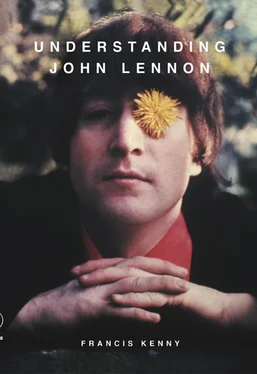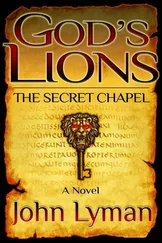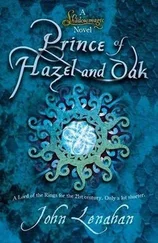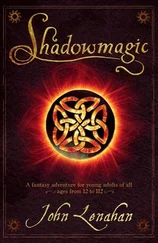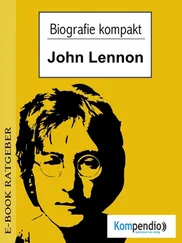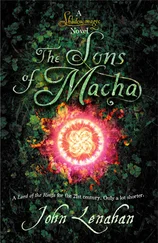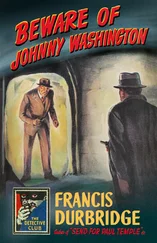But the allies’ victory in Europe meant not just a change in power relations, but also to the development of a post-war USA bringing cultural hegemony to much of western Europe. The UK in particular witnessed the arrival of American culture, from fashion to cinema and in language and music. Ten miles from Liverpool stood RAF Burtonwood Air Force Base, the largest American air base in Europe, where 12,000 American servicemen lived only a short ride from the city. At an age when teenagers were expected to be mini replicas of their parents with regards to fashion, music and outlook, the sharply dressed, ‘Hollywood talking’ American GIs became an instant hit with the teenagers of the city. Tied to this was the presence of the ‘Cunard Yanks’, the thousands of Liverpool seamen who manned the great transatlantic liners.
Liverpool was a great attraction to the GIs and became a welcome alternative to the staid environment of barrack life at Burtonwood. The Toxteth district of the city in particular, with its large immigrant population, provided a variety of (illicit) nightclubs, dodgy characters and music spots which presented a ‘safe haven’ – an exciting night out for many Afro-American GIs, especially given that these men enlisted in the war on racially segregated lines in terms of the units they belonged to. Figures by the Colonial Office and League of Coloured People at this time reveal that a third of Britain’s ‘coloured’ population were packed into the decaying Georgian and Victorian town houses of the city’s south end.
Mendips was not immune to such shifting cultural perceptions. Philip Norman reveals that, of all the British comics (such as The Victor , The Lion , The Commando and The Tiger ), Mimi only allowed The Eagle comic into Mendips. According to Norman, ‘Mimi had forbidden [John] comics, except perhaps the high-minded Eagle ’, 1which was edited by a clergyman. American comics with what Mimi deemed to be their lurid and sensational storylines were banned outright. The Eagle , though, was the only one to escape her censorship. ‘Moral seriousness made The Eagle stand out from the silly high jinks of its American rivals, but it did not dent its appeal’, Dominic Sandbrook pointed out. Indeed, The Eagle
was a good example of the way in which old notions of patriotic duty and Christian service were reinvigorated rather than abandoned after the war; although Dan Dare’s adventures take place in the far future, he retains the services of a batman and the International Space Fleet is identifiably a British hierarchical organisation. 2
The battle was not just for the hearts and minds of children, but for the broader values of British culture, the concern for which would stretch to debates in the House of Commons. Motions were put down which sought to ban the sale of American comics, supported by the National Union of Teachers convention. But to children like John, who were oblivious to such events, being brought up in Britain during this period was to be brought up in what many saw as the golden age of childhood. With the war finally over and rationing gradually phasing out (although it took until 1954 for the end of sugar rationing and therefore sweets and chocolate to be made freely available), many children of this generation looked back to an idyllic time of their lives.
Removal from his mother, followed immediately by a change of school, had begun a confusing and distressing time for the five-year-old John. The effects of the absence of both parents came to the surface in the playground and classroom, where belligerent and hurtful behaviour began to emerge. This attitude would ebb and flow throughout John’s whole life. From very early on, John was at war with the world and at war with himself. He recalled later:
I did fight all the way through Dovedale, winning by psychological means if ever anyone looked bigger than me. I threatened them in a strong enough way that I would beat them or they thought I could. 3
An interesting comment of John’s that gives an unintended insight into his own childhood came with his view on Ringo’s childhood. It appeared in Michael Braun’s The Beatles , the first book to be written on the group, Author: ‘We talked about Liverpool.’
Paul: ‘There is a certain awareness about some people in Liverpool. Like Ringo; he’s never been to school except two days. Three times they told his mum he was going to die.’ ‘Anyway,’ said John, looking at Ringo, ‘to be so aware with so little education is rather unnerving to someone who’s been to school since he was fucking two onwards.’ 4
On first reading it seems that John is insulting Ringo, but it’s quite the opposite. He’s criticising his own extensive education process and admiring Ringo’s street smartness and lack of schooling.
During his time at Dovedale School, John found a fellow malcontent in the shape – somewhat ironically – of a policeman’s son, Pete Shotton. They became fast friends, bonded by their commitment to refuse education. The two ‘refuseniks’ came across to their schoolmates as a double act. They delivered comic relief, the latest rude words and pranks, all sprinkled with a generous smattering of kicks to the shin, Chinese burns and forearm smashes. The bully in John was helped by his being upwards of 11 months older than some of the other pupils in his year. Since Pete lived close by to Mendips, the two would become inseparable. Pete’s limited acceptance by Mimi was no doubt entirely due to the position of his father as a high-ranking officer in the local police force.
In post-war Mendips, Mimi continued her commitment to a lifestyle of listening to Woman’s Hour and Mrs Dale’s Diary on the radio. This alternated with broadcasts of classical music and her reading of ‘quality fiction’. Cynthia Lennon recalls:
Early on it became apparent to me that Mimi was something of a snob: she was faux middle-class with upper-class aspirations and one of her favourite words was ‘common’. 5
But for all her attempts to bolster what she saw as cultured, suburban living, she had forgotten one key factor in achieving upward social mobility – acceptance from the community.
Mimi, still seething from her failed attempt at further social mobility, fell back on her rigid values and opinions, an attitude of bitterness and resentment which would, after a time, seep into the mind-set of young John. This sowed the seed of many of his destructive perceptions in his teenage and adult life. John would later talk of having a ‘chip on the shoulder’. ‘But on the other hand,’ he continued, ‘I want to be loved and accepted. That’s why I’m on stage, like a performing flea. Because I would like to belong.’ 6Life in Mendips didn’t equip John to be comfortable within himself. Compassion wasn’t in great supply at 251 Menlove Avenue. Mimi built up a strong sense of dependency in John, stemming from her own deep insecurities, and she cajoled, intimidated and bribed him into following the ‘right path’.
John spent most of his time between school and his small bedroom. The emotionless environment in which John found himself forced him to suppress his feelings for fear of further rejection. He sought security in an imaginary world of The Wind in the Willows , Alice in Wonderland and Jabberwocky : a world created and maintained through the nurturing of his precious reading, writing stories and poetry. The birth of John’s creative genius lies here, in this refuge of his imagination.
Up to the beginning of secondary school, John was limited in his involvement with other children outside of school. There was a radio in Mendips that could have helped pass the time, but Mimi had forbidden John to use it. He was later to recall:
Читать дальше
